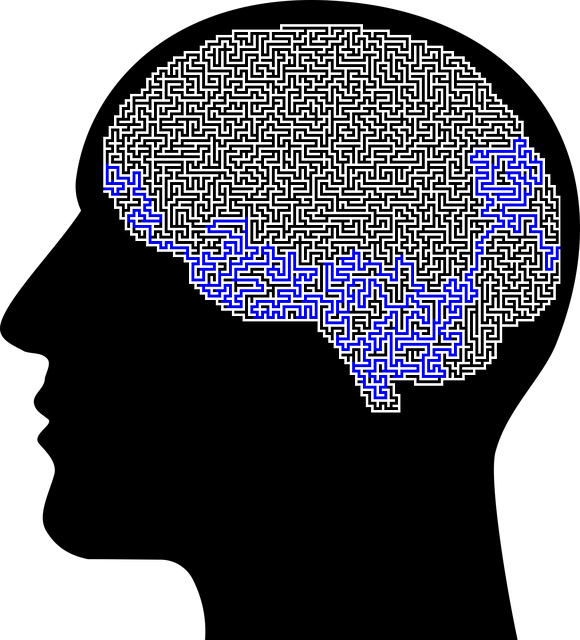Understanding mental health data through integrated Self-Awareness Exercises and Self-Care Practices is vital for personalized interventions like Aurora Acceptance and Commitment Therapy (ACT). This involves meticulous data preparation, cleaning, coding, and structuring for accurate interpretation by researchers and therapists. ACT's focus on accepting experiences, clarifying values, and promoting commitment enhances stress management and mental health care strategies. Statistical techniques reveal trends, guiding evidence-based practices and improving patient outcomes. Interpreted data enables personalized interventions aligned with clients' unique needs, leveraging ACT for anxiety relief and coping skills development while navigating stringent ethical considerations to protect client privacy.
Mental health data analysis is a powerful tool for understanding complex psychological phenomena. As digital health solutions grow, collecting vast amounts of data becomes feasible. This article explores strategies for analyzing and interpreting mental health data, from collection and preparation to advanced statistical techniques. We introduce the Aurora Acceptance and Commitment Therapy (ACT) framework as a unique lens for data analysis, enabling practitioners to derive actionable insights. Additionally, we discuss ethical considerations, ensuring responsible data handling in this sensitive field.
- Understanding Mental Health Data: Collection and Preparation
- Aurora Acceptance and Commitment Therapy (ACT): A Framework for Analysis
- Statistical Techniques for Uncovering Patterns and Trends
- Interpreting Results: Translating Data into Actionable Insights
- Ethical Considerations in Mental Health Data Analysis
Understanding Mental Health Data: Collection and Preparation

Understanding Mental Health Data is a pivotal step in unraveling complex psychological trends and personal journeys. Collectingly, mental health data encompasses various qualitative and quantitative information, from survey responses to therapy notes and biomarker readings. This diverse data requires careful preparation to ensure its integrity and relevance. For instance, integrating practices like Self-Awareness Exercises and Self-Care Practices can offer valuable insights into an individual’s coping mechanisms and overall well-being.
In the context of evidence-based treatments such as Aurora Acceptance and Commitment Therapy (ACT), proper data collection is crucial for tailoring interventions to meet specific needs. Preparing this data involves cleaning, coding, and organizing it in a structured manner, enabling researchers and therapists to interpret and analyze patterns accurately. This meticulous process not only facilitates Stress Management but also paves the way for more effective mental health care strategies.
Aurora Acceptance and Commitment Therapy (ACT): A Framework for Analysis

The Aurora Acceptance and Commitment Therapy (ACT) offers a compelling framework for analyzing and interpreting mental health data. This therapeutic approach emphasizes the importance of self-awareness exercises and mindfulness in understanding an individual’s emotional responses and behaviors. By promoting acceptance of one’s experiences, ACT helps clients establish a stronger connection between their thoughts, feelings, and actions, which is crucial for effective mental wellness coaching programs development.
This therapy goes beyond traditional problem-solving methods by focusing on values clarification and commitment to action. In the context of burnout prevention strategies for healthcare providers, ACT can be instrumental in enhancing resilience and fostering a sense of purpose. By integrating these self-Awareness exercises into mental health practices, professionals can better support their clients in navigating life’s challenges and achieving long-lasting improvements in mental wellness.
Statistical Techniques for Uncovering Patterns and Trends

In the realm of mental health data analysis, statistical techniques play a pivotal role in uncovering patterns and trends that can significantly impact treatment strategies. By employing advanced methods, researchers and professionals can gain valuable insights into various therapeutic approaches, such as Aurora Acceptance and Commitment Therapy (ACT). These techniques enable the identification of effective interventions for specific mental health conditions, enhancing the overall quality of care. For instance, data analysis may reveal correlations between emotional regulation strategies and improved patient outcomes, guiding practitioners in tailoring their treatments accordingly.
Moreover, the integration of statistical insights into risk management planning for mental health professionals is invaluable. By analyzing trends, professionals can anticipate potential challenges and implement proactive conflict resolution techniques. This predictive approach ensures that patients receive timely support, fostering a more supportive and effective therapeutic environment. Such analysis also facilitates the development of evidence-based practices, ultimately contributing to the advancement of mental health services.
Interpreting Results: Translating Data into Actionable Insights

Interpreting data is a pivotal step in mental health analysis, transforming raw numbers and qualitative insights into actionable strategies for bettering individuals’ lives. When applying methods like Acceptance and Commitment Therapy (Aurora ACT), the goal is not merely to understand patterns but to harness that knowledge for practical change. Each piece of data offers a clue about what works best for an individual’s unique mental health journey. For example, tracking progress in positive thinking exercises over time can reveal when and how these practices are most effective.
By integrating this information into therapy sessions, therapists can tailor interventions to align with clients’ needs. This personalized approach fosters Mental Wellness by ensuring that strategies are both relevant and impactful. Mental Health Awareness is enhanced when data guides decisions, leading to more precise support and ultimately, improved outcomes for those seeking help.
Ethical Considerations in Mental Health Data Analysis

As the field of mental health data analysis evolves, it’s crucial to navigate complex ethical considerations that come with handling sensitive information. Researchers and analysts must uphold the highest standards of confidentiality, ensuring client data remains secure and anonymous. This is particularly vital in implementing evidence-based practices like Aurora Acceptance and Commitment Therapy (ACT), where personal insights can lead to tailored interventions for better anxiety relief and coping skills development.
Respecting client privacy means adhering to strict protocols for data storage, access, and sharing. The potential for re-identification of individuals within mental health datasets is a significant concern, necessitating robust anonymization techniques. Moreover, ensuring informed consent and providing clear avenues for data opt-out are essential steps in promoting ethical practices that foster emotional well-being promotion techniques and build trust among participants.
Mental health data analysis is a complex yet powerful tool for understanding and improving well-being. By combining statistical techniques with frameworks like Aurora Acceptance and Commitment Therapy (ACT), professionals can uncover meaningful patterns and trends within mental health datasets. This, in turn, allows for the translation of data into actionable insights, leading to more effective interventions and personalized support. However, ethical considerations must be paramount throughout the process to ensure confidentiality, informed consent, and the responsible use of sensitive information. With proper navigation of these aspects, mental health data analysis has the potential to revolutionize care, fostering a more nuanced understanding of individual and collective mental wellness.














